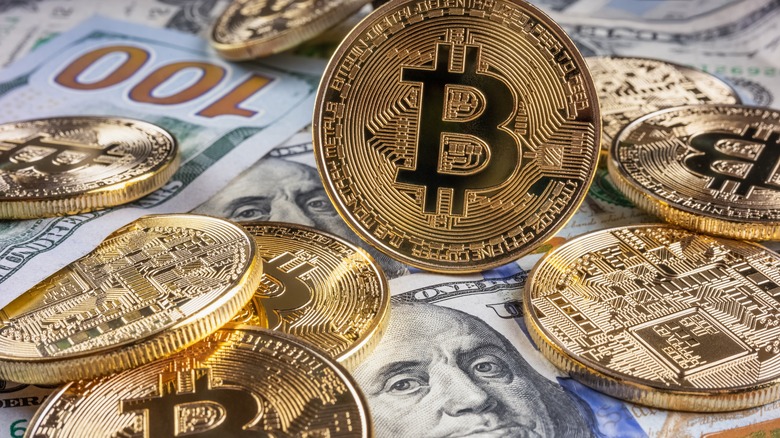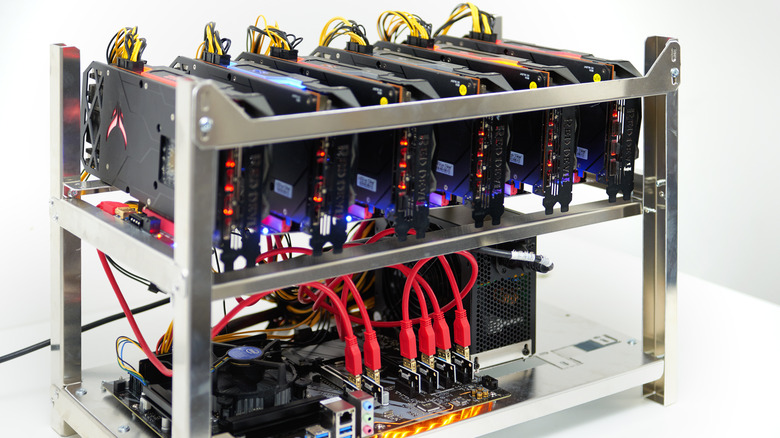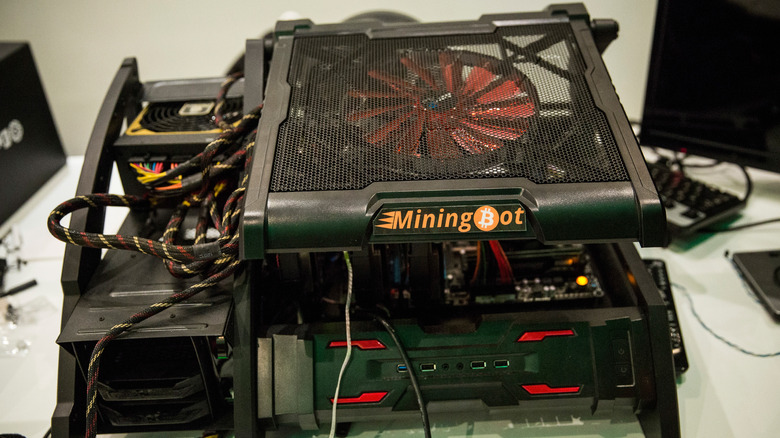What Is Bitcoin Mining And How Does It Work?
The story of money is as old as civilization itself. The first coins were said to have been made with important metals like bronze and copper, and there's some evidence suggesting coins may date as far back as 1250 B.C. The first official currency was the Mesopotamian shekel, which dates back some 5,000 years, but it wasn't until later that gold and silver were used to make money. MintLife says the first coin made out of silver — which we consider today to be a precious metal — did not come to be until 800 A.D., and the age of Charlemagne.
And so with money being in use for thousands of years, it was only a matter of time before the computer age would usher in a new type of currency — one that was made for the times. That digital currency would be introduced in 2008 by an entity named Satoshi Nakamoto, which called it "Bitcoin" and defined that as "a new electronic cash system"; and on January 3, 2009, the first Bitcoin, which also went by the name "genesis block," was mined. According to U.S. News & World Report, Satoshi reportedly mined 1.1 million Bitcoins in the seven months that followed.
Bitcoin mining, what exactly is it? Getting our heads wrapped around mining for metals and precious stones is easy, because it's a tangible activity that results in the extraction of important minerals, and it's an activity that we can detect with our senses. But mining for Bitcoin is a very different task.
Bitcoin mining calls for special, high powered hardware
As Forbes Advisor explains, mining cryptocurrency isn't actually a system through which users uncover new digital coins; rather, cryptocurrency miners compete with one another to verify the legitimacy of transactions. For this verification service, miners are paid a fee. In other words, the person who verifies the transaction first gets paid in Bitcoin.
That verification process is critical because it keeps cryptocurrencies like Bitcoin from being used twice. Part of this verification process is ensuring the ledger of the cryptocurrency's blockchain is always correct. But that process is not as simple as it sounds.
In order to verify the transaction, you need to crack a complicated digital equation, which is added for security's sake. Since this is effectively a race against time, you'll need more than a regular desktop, laptop, and phone to get the job done.
Freeman Law says pro miners rely on a strong, stable internet connection and a special type of computer known as an application-specific integrated circuit — or ASIC miners, which can be used to track down and verify just about any cryptocurrency. This mining setup can cost upward of $10,000.
An aspiring miner can also increase their chance of success by joining a mining pool, which improves their ability to solve these complicated puzzles quickly, per Forbes Advisor. But being part of a pool also means you probably need to share the Bitcoin once you find it.
Bitcoin mining is banned in some countries
If it seems like mining for Bitcoin isn't easy, that's because it isn't. Junior Theomou of Miners DeFi, a Bitcoin mining company, told Insider, "Every time more people mine more Bitcoin, the competition rises. The more machines on the market, the more difficult it becomes to mine Bitcoin. So now you have a competition going on, with more and more machines, mining and competing within each other."
Other than having to face intense competition, Bitcoin miners also have to be prepared to spend a lot on electricity — and it's the cost of the fossil fuel, which is burned to find Bitcoin by running high-powered computers for extended periods of time, that partially makes the currency so valuable.
Then there's the uncertainly surrounding the activity. Hardware provider Nick Spanos spoke to Insider and explained, "The profitability of Bitcoin mining depends on a multitude of factors, such as the cost of electricity, the mining equipment you're using, and the number of other people who are also mining Bitcoin."
Bitcoin mining is currently legal in some countries, but illegal in others — the Swedish government, for instance, wants the activity banned because it is so bad for the environment. Which means at the end of the day, the smartest way to get Bitcoin may not be to mine it, but to buy it at a currency exchange.


